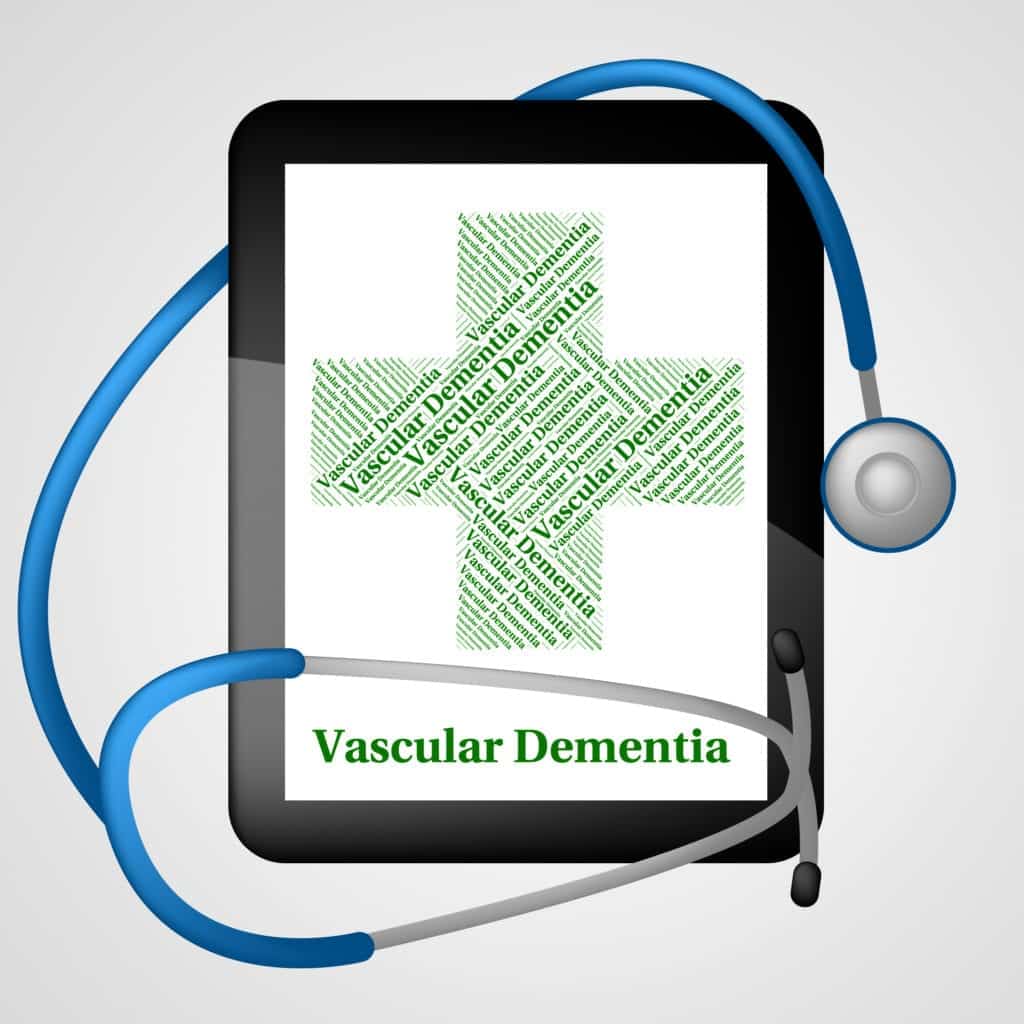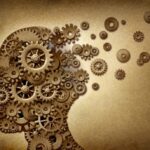Below we answer the question “What are the 7 stages of vascular dementia”. We’ll also look at other important vascular dementia topics.
You’ll learn: what it is, what causes it, what treatment and care options are available and more.
What is Vascular Dementia?
It’s pretty simple really. Our brains need blood to survive and thrive. Because blood brings our brain cells the good stuff they need to be healthy. Mainly oxygen and nutrients.
When the blood flow to the brain is reduced, bad things happen. One of those bad things could be vascular dementia.
Vascular dementia is simply a decline in brain function (memory, reasoning, thinking, judgment, etc.) due to reduced blood flow to the brain.
Vascular dementia is also known as “vascular cognitive impairment” or VCI. The experts prefer that term because they “feel it better expresses the concept that vascular thinking changes can range from mild to severe.”
(It’s up to you which term you want to use. Experts like to make up big, fancy names for things. They think it makes them sound smart. But usually it really just confuses most people.)
What Are the 7 Stages of Vascular Dementia?
Like other forms of dementia, there vascular dementia can be broken down into 7 stages. These stages – the symptoms, how long they last, etc. – vary for every individual.
These stages are determined by the cognitive decline of the person with dementia. They can help caregivers understand what to expect and look out for in each stage as dementia progresses.
Here are the 7 stages of vascular dementia:
Stage 1: No signs of dementia
Stage 2: Very mild decline (some memory problems)
Stage 3: Mild decline (increased trouble with memory loss and concentration)
Stage 4: Moderate decline (increased memory issues, trouble with complex tasks)
Stage 5: Moderately severe decline (person may forget names of family members, can become disoriented and will need assistance)
Stage 6: Severe decline (need assistance with daily activities, may forget names of spouse/other close loved ones, can become unaware of surroundings)
Stage 7: End stage dementia (may have trouble walking, experience incontinence, lose ability to communicate)
Vascular Dementia Causes
As just mentioned above, vascular dementia is caused by reduced blood flow to the brain. Some of the things that cause this reduced blood flow include:
- The narrowing of the blood vessels that carry blood to and around the brain. This can be due to high blood pressure, diabetes, brain hemorrhage, atherosclerosis or just regular old aging.
- A stroke (or a number of mini-strokes)
- Brain damage due to Alzheimer’s disease (this is also called mixed dementia)
Whatever the reason, reduced blood flow will eventually cause brain cells to die. Which leads us to the symptoms of vascular dementia…
Symptoms of Vascular Dementia
Vascular dementia symptoms vary widely. Two main factors that affect what the symptoms are for any given individual are how severe the blood flow reduction is and what the part(s) of the brain are affected.
That said, the symptoms are similar to those associated with other types of dementia and include…
- Slower brain speed
- problems following a series of steps
- Difficulties organizing, problem solving and/or making decisions
- Confusion
- Agitation
- Difficulty concentrating/paying attention
- Language problems
- Rapid mood swings
- Memory issues
Many of these symptoms overlap with Alzheimer’s. And it’s not uncommon for someone to suffer from both these forms of dementia (known as mixed dementia).
Prognosis & Life Expectancy
As with all other types of dementia, there unfortunately is no cure for Vascular Dementia. Yet!
How long someone lives with vascular dementia varies widely. You can find estimated life expectancy estimates from 3 years to 20 years.
How long your loved one with vascular dementia will live depends on the underlying cause, other medical issues, the care they receive and age.
Care & Treatment Options
Currently there are no approved drugs used to treat the specific symptoms of vascular dementia.
However, doctors may prescribe drugs that treat the underlying conditions in the heart and/or blood vessels that caused the vascular dementia.
Depending on the situation this may include drugs that lower blood pressure and/or cholesterol. It may also include treatments to keep blood from clotting and reduce the risk of further strokes.
There are also non-medical treatments that can help make the day-to-day life of someone with vascular dementia easier. These include…
- Occupational therapy
- Physiotherapy
- Speech therapy
- Music therapy (or other relaxation techniques)
- Social interaction
- Other activities that keep your loved one physically and mentally active
As with other forms of dementia, the best advice we can give for caregivers is this…
… don’t go through this alone!
There are a number of resources available online and offline to help you and your loved one. From online support groups to local support groups. Adult day care to assisted living. From government programs to the Alzheimer’s association.
Take advantage of all the help you can. It will make a positive difference in your life and the life of your loved one.
Final Stage Dementia
This is part of our series of articles about the 7 stages of dementia. To learn more about what to look for in the final stage of dementia, please read our article, “What are the final stages of dementia?”





I would like to receive more informations about the disease. That can be very helpful to full fill my DAY. Thanks